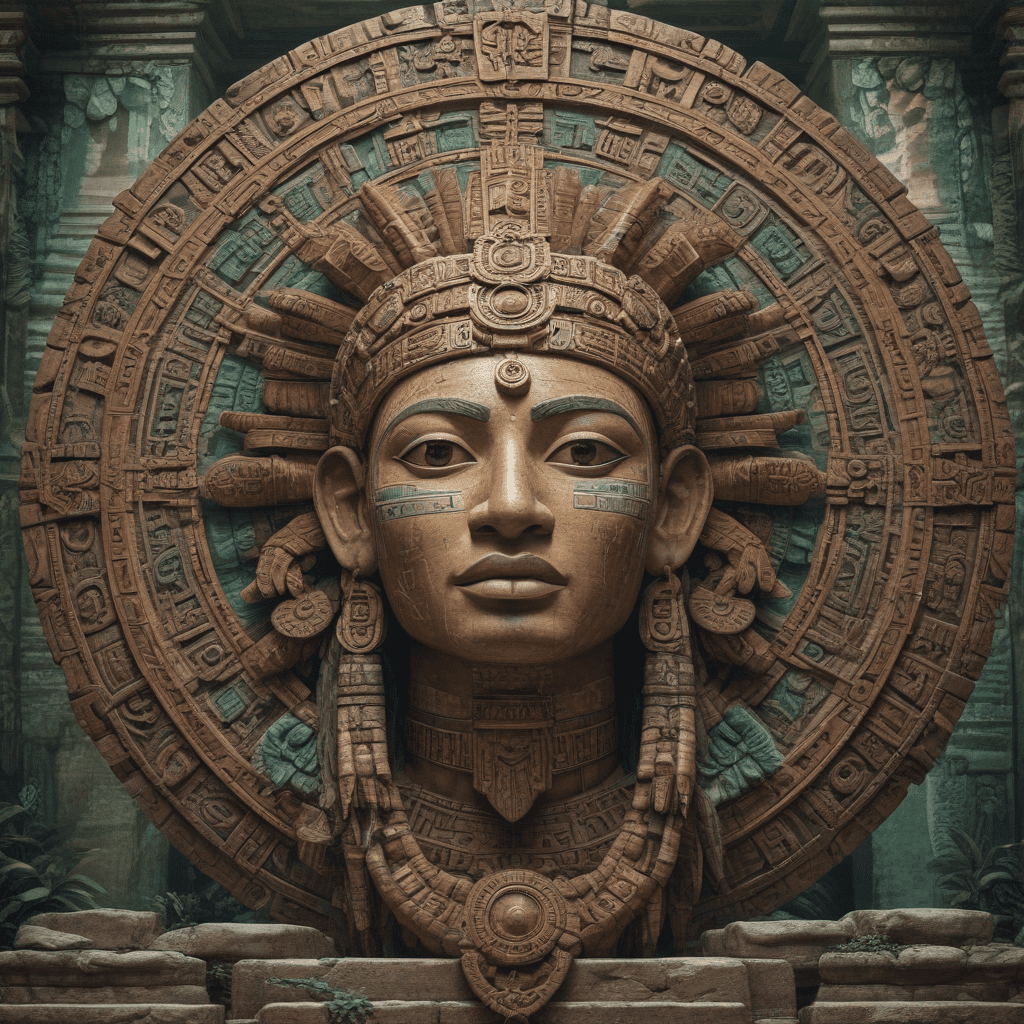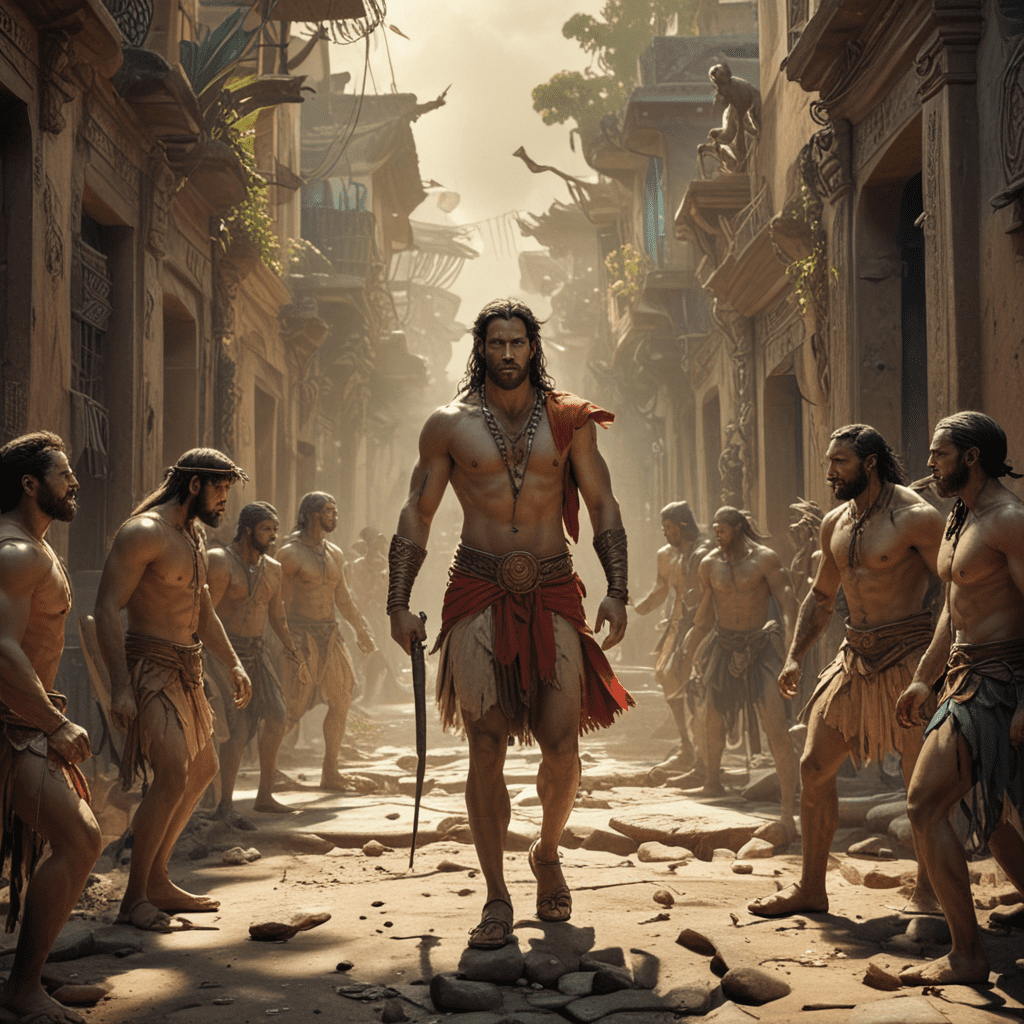Lessons of Wisdom: Morality in African Mythology
African mythology is a rich tapestry of stories, beliefs, and traditions that have been passed down through generations. These tales often serve as moral lessons, teaching important values and ethical principles. Here are some of the key lessons of wisdom found in African mythology:
1. Anansi the Trickster: The Importance of Wit and Resourcefulness
Anansi the trickster is a popular character in many African folktales. He is known for his cunning, intelligence, and resourcefulness. Anansi's stories often teach the importance of using wit and deception to overcome obstacles and achieve one's goals. He reminds us that sometimes the best way to succeed is to think outside the box and use our intelligence to our advantage.
2. The Ancestor Spirits: Respect for Elders and Family Values
In African mythology, ancestor spirits are highly revered. They are believed to watch over their descendants and provide guidance and protection. Respect for elders and family values is a central theme in many African folktales. These stories teach the importance of honoring and caring for our elders, as well as maintaining strong family ties. By showing respect for those who came before us, we ensure the continuity and well-being of our communities.
3. Ogbanje Children: The Consequences of Sin and Taboos
Ogbanje children are a common figure in African folklore. They are believed to be children who die young and then return to life, only to die again shortly after. According to tradition, ogbanje children are the result of a broken taboo or sin committed by their parents. These stories teach the importance of following societal norms and avoiding actions that could bring harm to oneself or others. They remind us that our actions have consequences, and that breaking taboos can lead to tragedy.
4. The Esu-Elegbara: The Duality of Good and Evil
Esu-Elegbara is a pivotal deity in Yoruba mythology. He is known as the trickster god, but he also embodies the duality of good and evil. Esu-Elegbara's stories teach us that there is a balance between good and evil in the world. We must strive to live in harmony with both sides of our nature, embracing our strengths while acknowledging our weaknesses. By understanding the complexities of good and evil, we can make wiser choices and navigate the challenges of life.
5. The Sango God of Thunder: Justice, Revenge, and the Wrath of the Gods
Sango is the Yoruba god of thunder and lightning. He is a powerful and respected deity, known for his fierce temper and his ability to bring justice to those who deserve it. Sango's stories often teach the importance of justice and the consequences of wrongdoing. They remind us that those who commit evil will eventually face the wrath of the gods. By adhering to ethical principles and avoiding injustice, we can appease Sango's wrath and ensure the harmony of society.
6. Obatala the Creator God: Perfection, Purity, and the Sacred
Obatala is the Yoruba creator god, responsible for molding humanity from clay. He represents perfection, purity, and the sacred. Obatala's stories teach the importance of striving for excellence in all aspects of life. They remind us that even in our imperfections, we can find beauty and worthiness. By honoring the sacred and seeking purity in our hearts, we can connect with the divine and live a life of purpose.
7. Oya the Goddess of the Wind and Storms: Power, Freedom, and Vengeance
Oya is the Yoruba goddess of the wind and storms. She represents power, freedom, and vengeance. Oya's stories teach us the importance of embracing our own power and using it for good. They remind us that even in times of adversity, we can find strength and resilience within ourselves. By harnessing the power of the wind, we can overcome obstacles and achieve our goals.
8. Babalú-Ayé the God of Diseases: Pain, Suffering, and the Redemption of Sin
Babalú-Ayé is the Yoruba god of diseases. He represents pain, suffering, and the redemption of sin. Babalú-Ayé's stories teach us that even in the midst of suffering, we can find hope and healing. They remind us that our pain can lead us to greater understanding and compassion for others. By acknowledging and facing our suffering, we can transform it into a source of strength and wisdom.
9. Oduduwa the First Ruler: Leadership, Prosperity, and the Foundation of Civilizations
Oduduwa is the legendary first ruler of the Yoruba people. He represents leadership, prosperity, and the foundation of civilizations. Oduduwa's stories teach us the importance of taking responsibility and using our power to create a better world. They remind us that true leadership comes from serving others and working towards the common good. By following in Oduduwa's footsteps, we can build strong communities and societies that thrive.
10. Oshun the Goddess of Beauty and Wealth: Sensuality, Abundance, and the Importance of Self-Awareness
Oshun is the Yoruba goddess of beauty and wealth. She represents sensuality, abundance, and the importance of self-awareness. Oshun's stories teach us the importance of embracing our sensuality and enjoying the pleasures of life. They remind us that we are worthy of love, abundance, and happiness. By connecting with Oshun's energy, we can unlock our full potential and live a life of passion and purpose.
FAQs:
What is the significance of African mythology?
- African mythology provides moral lessons, teaches important values, and reflects the beliefs and traditions of African cultures.
How do African folktales convey morality?
- Folktales use characters and stories to illustrate ethical principles, consequences of actions, and the importance of respecting elders, family values, and the sacred.
Why is it important to respect ancestor spirits in African mythology?
- Ancestor spirits are believed to guide and protect their descendants, fostering a sense of continuity and honoring the wisdom of past generations.
What does the trickster figure represent in African mythology?
- Trickster figures like Anansi embody wit, resourcefulness, and the ability to overcome obstacles through cleverness and deception.
How do the gods and goddesses in African mythology symbolize different aspects of life?
- Deities like Sango, Obatala, Oya, and Oshun represent concepts such as justice, creation, power, and beauty, offering insights into the complexities and interconnectedness of the human experience.



